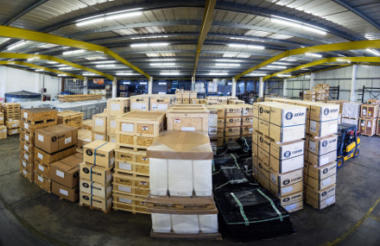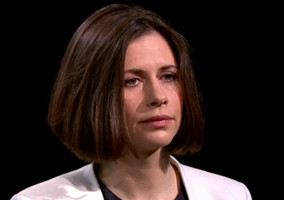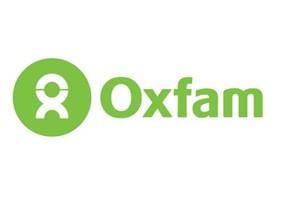Andrew Hind reflects on the recent revelations from the Oxfam sexual abuse scandal and says that, although it still has a great deal to do to get on top of its safeguarding challenges, Oxfam's actions are not those of a negligent organisation.
The Oxfam sexual abuse scandal has generated intense media and political criticism of the charity, and of the sector as a whole, the like of which we haven’t seen since the sad case of poppy-seller Olive Cooke’s death three years ago. What is it about the Oxfam case which has lit the blue touch-paper so dramatically, what can we learn from the sector’s experiences back in the summer of 2015, and what should happen now?
Clearly, after months of revelations about sexual harassment, and worse - in Hollywood, Westminster and elsewhere, and the appalling events at the President’s Club dinner only a few weeks ago - there is heightened media interest in stories of this kind.
Some have also argued that a number of newspapers and politicians were keen to give the Haiti revelations maximum exposure as a way of deliberately damaging Oxfam’s reputation. The charity had antagonised some politicians following its recent campaign - Reward Work, Not Wealth - which called for governments around the world to focus on creating more equal societies which benefit “ordinary working people, not the rich and powerful”. Critics say this amounted to an unjustifiable attack on capitalism.
Both these factors undoubtedly added to the story’s profile when it was broken by The Times. But the primary reason for the intense interest in what happened in Haiti in 2011 is that seven members of Oxfam’s staff betrayed the core values of an organisation which has been widely admired around the world for over 70 years. It has subsequently become apparent that Haiti was not the only country in which such disgraceful behaviour took place, and it is alleged that senior Oxfam management didn’t respond with sufficient urgency and rigour and didn’t keep either the Charity Commission or the Department for International Development (DFID) fully informed.
Breach of trust
The public believe there is something different about charities, something which sets them apart from all other organisations. The ‘something different’ is that charities are driven by a non-negotiable set of values, where the interests of the vulnerable and disadvantaged always come first. Where staff are there to serve, not to profit, and where ends can never justify means. It is this which has driven the high historic level of public trust in charities.
When even a small number of a charity’s employees betray its values so dramatically, and senior management fail to respond adequately, it is consequently a huge issue. If the charity concerned happens to be one of the largest and best known in the land, not only is the charity itself in serious difficulty but trust in the sector as a whole is called into question.
That is where we have found ourselves again in recent days. A highly respected charity in serious trouble, and the whole sector back under the spotlight.
This time it is about inadequate safeguarding. Last time it was about unacceptable fundraising practices. The common thread between 2015 and 2018 is that in both cases the public saw charitable values seriously compromised. Public trust in charities has once again been endangered.
Learning from the Olive Cooke case
In 2015 a number of large charities were too slow to realise that their fundraising techniques had undermined their charitable values, and had got out of step with what the public found acceptable. They continued to defend the indefensible. Time had moved on, the public’s views had changed, but many large charities didn’t recognise it quickly enough. Trustee boards were also reluctant to engage with the issue and provide the necessary leadership.
As a result, charities were considered by the public to be complacent and too slow to change their ways. Only after a parliamentary select committee review of the issue, the toughening stance of regulators and the awareness of forthcoming new legislation, did wholesale change to the sector’s fundraising practices begin.
The parallels with the Oxfam crisis are obvious.
‘Moral leadership’ from the top
Penny Mordaunt, Secretary of State for International Development, is right to say that the situation calls for “moral leadership at the top”. Not just at Oxfam, but in every charity engaged in international aid and development, and indeed every charity that works with vulnerable beneficiaries.
Where I differ from those who have seemed happy to pile in and fan the firestorm surrounding Oxfam is that, in my view, moral leadership at the top is unquestionably being demonstrated in the charity right now, just as it has been demonstrated in spades by Oxfam leaders for many years.
Cecil Jackson-Cole, who formed the Oxford Famine Relief Committee in 1942 (later to become Oxfam), showed huge moral leadership when he campaigned for food supplies to be sent to starving women and children in occupied Greece during the Second World War. Sir Leslie Kirkley, the indomitable Oxfam CEO from 1951-74, showed great moral leadership when he steered the organisation in the early 1960s towards campaigning against the causes of hunger and poverty as well as providing disaster relief.
Mark Goldring, who became Oxfam’s CEO in 2013, stands on the shoulders of giants such as these. He is one of the great civil society leaders of his generation, formerly a highly impressive CEO at VSO and at Mencap. Goldring is widely respected for his professionalism, humility and compassion. Frankly, if Mark Goldring can’t fix this problem at Oxfam then I can’t think who could.
Too slow to respond
By Mark Goldring’s own admission, Oxfam has made mistakes in its handling of safeguarding issues and in particular didn’t get everything right when dealing with the Haiti crisis in 2011. He said on Monday in answer to criticisms from the charity’s former head of global safeguarding, Helen Evans, that although emerging safeguarding concerns in other countries (including the UK) were taken seriously he wishes in retrospect that he had invested more resources in safeguarding at an earlier date - “we were too slow to start scaling up in 2013”, Goldring said.
Without inside knowledge, I can only observe that, after Haiti, Oxfam established a head of safeguarding position, created a whistleblowing hotline, sent safeguarding training teams to country programmes and voluntarily included a detailed summary of reported safeguarding incidents in its published trustees annual report every year, available for all to read on the Charity Commission register of charities.
Oxfam’s transparency about the safeguarding issues it was having to deal with was second to none. Of 87 reported incidents in 2016/17 some 70 per cent were in the UK. It seems likely that the fact Oxfam recorded more safeguarding incidents than other NGOs is because it tried so hard to create the climate in which people felt able to report incidents affecting them.
A great deal to do
That certainly doesn’t sound like a negligent organisation, nor in my opinion can Oxfam be considered to have been complacent. But like so many other organisations, in so many walks of life, Oxfam still has a great deal to do to get on top of its safeguarding challenges.
The latest twist in the tale is that it has become horrifyingly clear that issues of sexual harrassment and abuse are prevalent across the entire aid sector. On the BBC’s Newsnight programme last night the issue was addressed by an academic researcher in the US who has undertaken a major study of sexual harrassment and assault within aid organisations globally, including the UN.
Dyan Mazurana, from Massachusetts Tufts University, said: “The heat Oxfam is taking right now makes it look as if this is an Oxfam problem, but this is industry-wide”. She said that “Oxfam is best practice. It is widely viewed by other international NGOs (INGOs) as having the best safeguarding unit and the best safeguarding policies and practices in place” among the INGO community. Mazurana added: “Other agencies have not stepped up to the level Oxfam have”.
Oxfam now needs to be supported by an active contribution from Bond, the network of international NGOs, which will have an important role to play in helping all its members develop robust safeguarding practices. The Charity Commission and DFID also have key contributions to make. Hopefully all the bodies involved will work together in a spirit of partnership to eliminate this scourge from the NGO world as soon as possible. Oxfam should not be hung out to dry. It should not have to face this problem alone.
The comprehensive package of measures announced by Oxfam’s new chair, Caroline Thomson, to strengthen the prevention and handling of sexual abuse cases, gives confidence that the organisation really means business. Let’s hope she and Mark Goldring are given the time and space to get on with the job. It would be a tragedy if the deplorable actions of a few are allowed to undermine Oxfam’s deserved reputation as a global leader in civil society.
Andrew Hind was the first chief executive of the Charity Commission between 2004 and 2010. He is a director and executive editor of Civil Society Media.
|
Related articles











